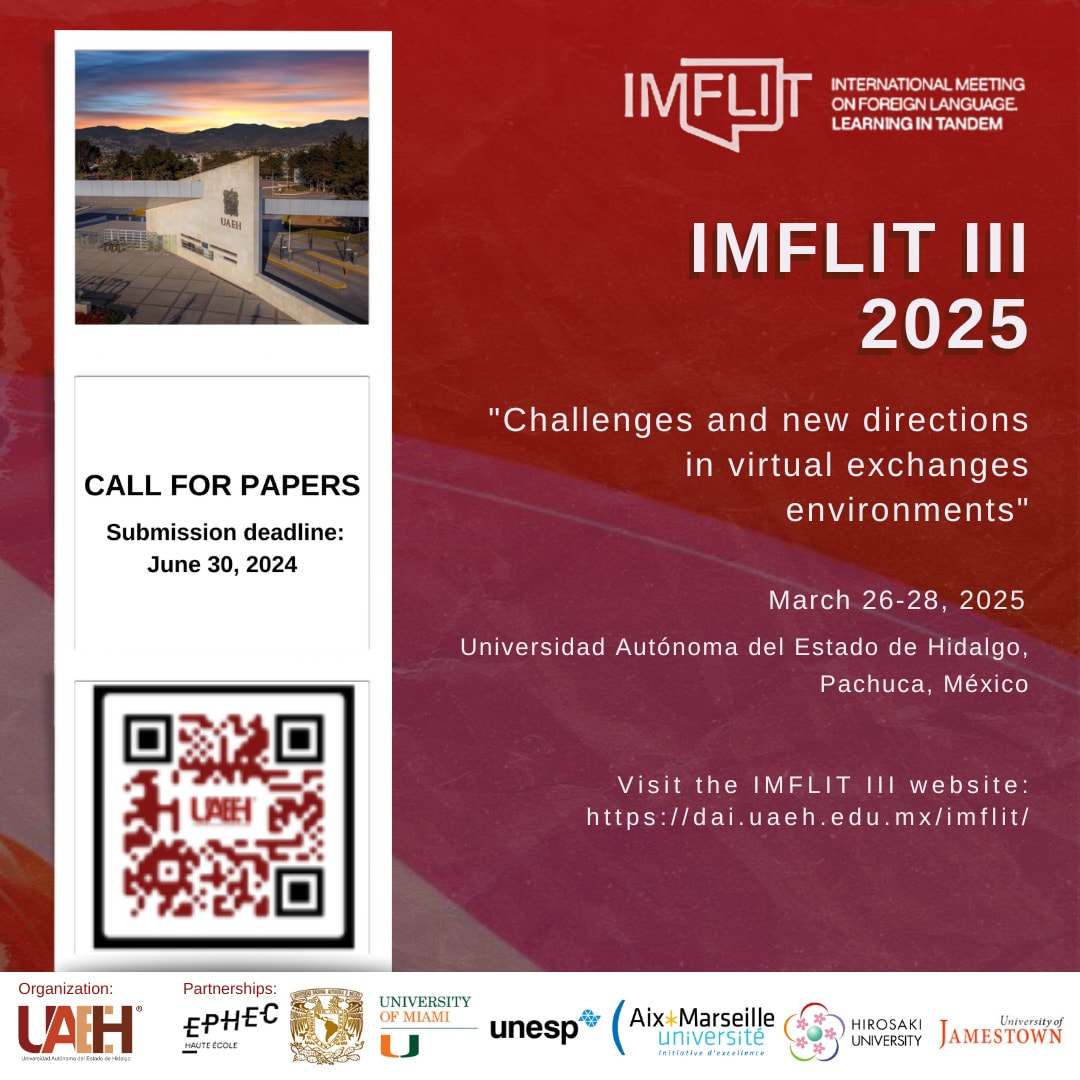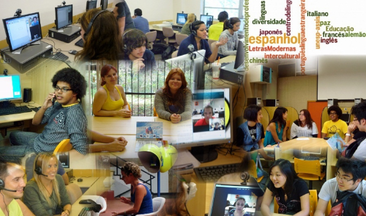International events
IMFLIT - International Meeting on Foreign Language Learning in Tandem
Learning foreign languages in-tandem is not a new idea. Tandem learning has been used by many students and professionals in the field of foreign language learning, since it was developed in Europe in the seventies and eighties. Foreign language learning in-tandem is based on principles of peer collaboration and reciprocity and much research has been carried out about the characteristics and language acquisition processes using this approach.
Editions: III - 2025; II - 2018; I - 2014
Editions: III - 2025; II - 2018; I - 2014
GUTelOnX - Georgetown-UNESP Teletandem & Online Exchange
GUTelOnX is a partnership between Georgetown University and the São Paulo State University that aims to investigate and promote research about telecollaboration in education.
Editions: I - 2020
Editions: I - 2020
Teletandem Mediation Courses
Since the implementation of the Teletandem Brasil project, there have been orientation sessions for the participants and institutional partners to have guidelines and understand the dimensions that underlie teletandem practice. Due to the increasing number of partnerships and the need for new teletandem mediators, we have been offering courses on teletandem mediation, which have been carried out in different formats (blended and online editions, theoretical and practical activities).
Editions: V - 2017; IV - 2016; III - 2015; II - 2014; I - 2014
Editions: V - 2017; IV - 2016; III - 2015; II - 2014; I - 2014
National events
Encontro de pesquisas sobre Teletandem/UNESP
O Encontro de Pesquisas Sobre Teletandem/UNESP visa promover um contexto para debates acerca da formação inicial e continuada de professores de Línguas Estrangeiras a partir de questões como multiletramentos, transculturalidade e multiculturalidade em contexto Teletandem.
Edições: III - 2019; II - 2017; I - 2016
Edições: III - 2019; II - 2017; I - 2016
Teletandem e suas redes no Brasil: valorização das práticas e contribuições das pesquisas
O Simpósio “Teletandem e suas redes no Brasil: valorização das práticas e contribuições das pesquisas” tem como objetivos:
● Compartilhar a experiência da UNESP na implementação e desenvolvimento do Teletandem;
● Congregar (integrar) professores-participantes/praticantes de teletandem no Brasil para troca de experiências;
● Apresentar resultados e possibilidades de pesquisa;
● Conscientizar as instituições parceiras da UNESP sobre a importância de um grupo coeso e produtivo.
São convidados a participar do evento professores e pesquisadores que têm trabalhado com o Teletandem e/ou que têm interesse em implementar esse contexto em suas instituições de ensino.
Edições: I - 2022
● Compartilhar a experiência da UNESP na implementação e desenvolvimento do Teletandem;
● Congregar (integrar) professores-participantes/praticantes de teletandem no Brasil para troca de experiências;
● Apresentar resultados e possibilidades de pesquisa;
● Conscientizar as instituições parceiras da UNESP sobre a importância de um grupo coeso e produtivo.
São convidados a participar do evento professores e pesquisadores que têm trabalhado com o Teletandem e/ou que têm interesse em implementar esse contexto em suas instituições de ensino.
Edições: I - 2022
Ciclo de debates do Grupo de Pesquisa Intercâmbio Virtual e Teletandem (InViTe)
O Ciclo de debates do Grupo de Pesquisa Intercâmbio Virtual e Teletandem (InViTe) é um evento que reune as/os pesquisadores principais do grupo InViTe para discussão com a comunidade acadêmica sobre o papel do teletandem na UNESP, considerando essa prática como uma intersecção de interesses das diversas dimensões da universidade (ensino, pesquisa, extensão e internacionalização).
Edições: I - 2023
Edições: I - 2023



